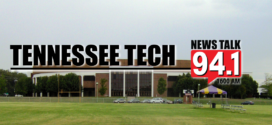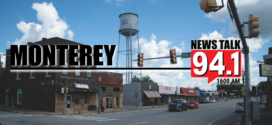Cookeville City Manager James Mills proposed a 10 cent property tax increase in the new fiscal year budget.
The increase would create some $1.17 million in additional revenue or roughly $117,000 per penny.
Mills told city council members during a Tuesday work session the property tax increase would raise taxes on a $200,000 home by roughly $50.
The property tax increase would help the city with increased costs related to both increasing needs and services as well as inflationary pressures.
“How do we pay for significant salary increases for our first responders?” Mills said. “These guys and gals deserve this, and we need this to be competitive, but we’ve got to be able to account for inflation. And then I’ve gone over some of the infrastructure and service needs for the community, but our sales tax numbers have grown significantly. Even with the increased sales tax, it’s not enough to meet all these priorities going forward.”
The budget plan being shared with council members includes $2.533 million in pay raises for city employees. The majority of that will be major improvements to police officer and firefighter salaries.
Mills said the work done to improve employee salaries in recent years means the budget for salaries will have increased by some $4 million annually.
The new budget proposal includes expenditures of $41.807 million with revenue of $37.297 million. The majority of the revenue number is sales tax revenue, or about 52 percent.
Finance Director Brenda Imel said it is the first time Cookeville’s expenses have exceeded $40 million.
The difference would be made up by fund balance. The capital projects included in the proposed plan totals some $4.7 million.
Cookeville’s last property tax increase came in 2019 when the city increased its property tax rate by 15 cents. Taxes increased five cents in 2012, eight cents in 2008.
“Even with the ten cent increase, we still don’t move up in the rankings here of cities our size,” Mills said.
Mills said budget priorities this year includes competitive wages with a concentration on first responders, technical and specialized skilled position. City officials also considered the impact of inflation on increased operating costs. Mills said the city also looked closely at the ability to provide service to the growing community. Finally, the economic uncertainty over the next year is a concern.
In the individual city department expense lines, the public works department would see a 13 percent increase in expenses. Much of that comes from fuel and other supplies. Imel said that is one of the largest departmental increases.
The police department would see expenses increase by some nine percent. The majority is in personnel costs. The fire department will also see an increase of 8.7 percent, including the addition of three new firefighters.
Leisure Services expenses would increase by roughly eight percent. The Community Development department sees an increase of four percent.
“Traditionally, the city has been very conservative, and that’s paid great dividends for the city because it’s rare that we don’t have the revenue coming in that we need to operate,” Mills said. “And that’s because we are very conservative in what we budget growth to be.”
 News Talk 94.1/AM 1600 Where The Upper Cumberland Talks
News Talk 94.1/AM 1600 Where The Upper Cumberland Talks







